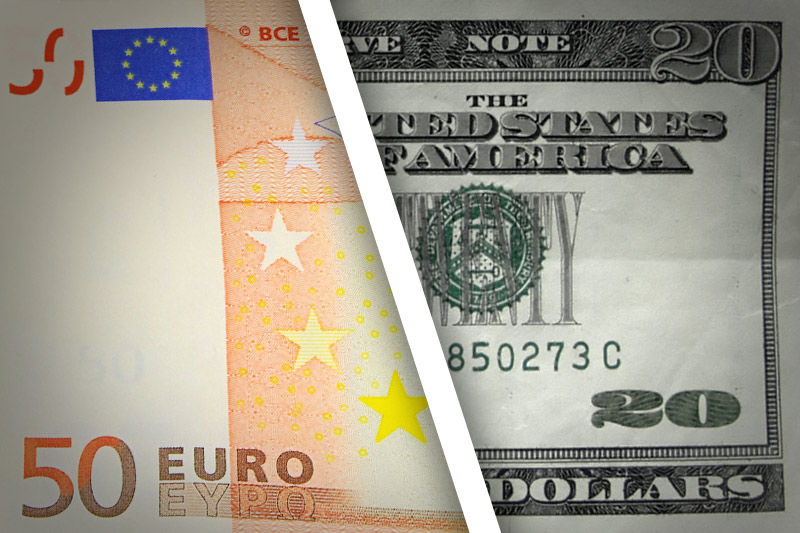Investing.com -- EUR/USD fell sharply, erasing all of its gains from the previous session, as both Mario Draghi and George Soros voiced concern about the state of the euro area economy, as well as global economic conditions overall.
The currency pair traded in a tight range between 1.1305 and 1.1416, before settling at 1.1318, down 0.69% on the session. Over a volatile last month of trading, the euro is still up by nearly 1% against the dollar. Despite Thursday's considerable losses, the euro has still settled above 1.13 at the close of U.S. markets in six straight sessions.
EUR/USD likely gained support at 1.1055, the low from March 15 and was met with resistance at 1.1616, the high from May 3.
In a closely-watched speech in Brussels, Draghi lashed into politicians throughout the euro zone for helping stall economic reforms while furthering their own political agendas. Specifically, Draghi noted that the European Central Bank is doing a large portion of the heavy lifting on its own with little help from top political leaders in terms of enacting the proper fiscal policies. Draghi, the president of the ECB, made the comments on Thursday at the Fifth Annual Tommaso Padoa-Schioppa Lecture at the Brussels Economic Forum.
"There are many understandable political reasons to delay structural reform, but there are few, very few, good economic ones,” Draghi said. “The cost of delay is simply too high."
Draghi's comments came one day after the ECB launched a comprehensive corporate bond program, the latest tool at its disposal to help bolster persistently low inflation. The bonds will be limited to investment-grade securities, according to the ECB, which are euro denominated and issued in the euro zone. The ECB is expected to release a list of participating corporations later next month.
Yields on the Germany 10-Year slumped to an all-time record-low of 0.028%, before rebounding slightly to 0.03, down two basis points on the session. Yields on the U.S. 10-Year fell two basis points to 1.69%. During an extended yield rout, both U.S. and German 10-year yields have plunged more than 75 basis points over the last year.
Elsewhere, Bloomberg reported that billionaire investor George Soros has taken a more active role in his family's trading activity, amid emerging headwinds facing the global economy. Later, in an exclusive interview with the Wall Street Journal, Soros cited a plethora of concerns weighing on the current economic outlook including: China's debt-ridden economy, persistent economic struggles in Greece, the ongoing euro area migration crisis and the potential of a Brexit departure from the European Union in a controversial referendum in two weeks.
As a result, investors piled into safe-haven assets such as gold and the Japanese yen on Thursday. USD/JPY fell more than 0.25% to an intraday-low of 106.25, its lowest level on the month. Since closing May above 110, the dollar has crashed nearly 4% against the yen.
The U.S. Dollar Index, which measures the strength of the greenback versus a basket of six other major currencies, surged more than 0.50% to an intraday high of 94.11 before closing near session-highs. The index has crashed by more than 5% since early-December.
Foreign exchange traders await the completion of the Federal Reserve's two-day meeting next week for further indications on potential divergence between the Fed and the ECB. The Fed has left its benchmark interest rate unchanged at each of its first three meetings this year.
Any rate hikes by the Fed in 2016 are viewed as bullish for the dollar as foreign investors look to capitalize on higher yields from the greenback.
